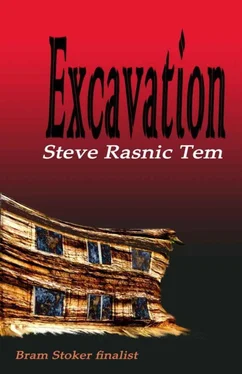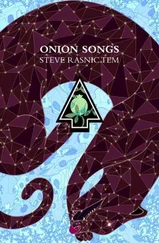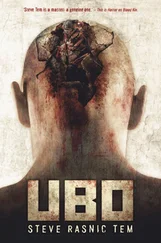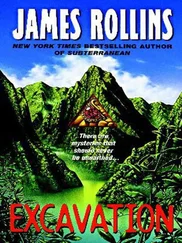Steve Rasnic Tem
EXCAVATION
For Melanie, with special thanks to Dan Simmons and Ed Bryant
Again the bear awakened with his muzzle sunk in huckleberries. He snorted once and inhaled them. Growled deep within his throat and raised up. Stiffened and scented the air. Nothing. But something bothered him, just on the edge of his awareness. He could not smell it, or hear it. He lumbered off toward the trees, leaving even this vague awareness behind.
He recognized the kind of tree where he could get the acorns. It was important to get them now, before they fell; otherwise the deer would gobble them all up. He sniffed the air, then let his ears do the searching for him. Nothing. Propelled by his hind legs, he shinnied up the tree, circling the rough bark in a spiral. Then he stopped. Smelled the air. Nothing.
But something was wrong. He stared at the acorns for a long time but did not eat them. He needed to be full; the cold would come, the snow, and he needed to be full. Acorns and pine seeds and roots and carpenter ants, grasshoppers… He needed filling. He was empty, had nothing but night hollow inside, cold hollow, and needed to be filled. But somehow he knew these usual things would not fill him this year.
Something was different. He could not be sure if it was the things outside or the things inside him, but something had changed. He did not stay in this part of the woods. It had been a long moving to get here, a moving he could not remember, and there were no others of his kind here.
He saw an old house inside him, and humans, when these things were not there. And he knew he used to live in that house and act like one of those humans.
It hurt to have these things inside. He was used to having many things inside: insects, roots, stems and berries, the woods, the air and the dark; he had had all these things, but he had never had these human things inside before. He descended the tree tail first, landed on his rump, rolled over, and ambled off.
Something was different. He should be filling himself, but he could not fill himself. He should be ready for the cold, but somehow he knew he might not get ready this year. He might stay here, going back and forth through the woods even when the cold came. Something new inside was making him do this. This thought frightened him.
He stopped, pulled his ears back. Staring. This thing… he had never seen, never heard or smelled this thing before. Sniffing the air then staring ahead, eyes not moving. This new thing not moving.
He slapped the ground with both front paws. He gave a loud huff, blowing air and dark and smell of what he’d eaten. This new thing not moving.
He gnashed his teeth. Not moving. He began snapping his jaws rapidly while popping his lips together. Not moving.
He charged. Wind and ground and woods rushing.
The new thing did not move, did not seem to know he was charging. Was he charging? He no longer knew. He roared in fear.
At the last minute the bear veered off and ran away, thinking of the old house inside him, the humans, knowing he must see this place.
It was an early fall Saturday in Denver, a day that started out cool and windy and pleasant, but Reed knew it could easily flash back into midsummer in the afternoon, before giving them an icy taste of winter that evening. It made his cold worse; his nose had been running for weeks now, his thoughts congested. He had thought he was through with colds—hadn’t had them in years. But now it was worse than ever—felt as if his nose were being worn away. He hadn’t slept properly in days.
He had always thought of Colorado as a land of transformations, an open country of wide sky and empty plains and seemingly bare mountains, ready to be manipulated by the imagination that was large enough. What kind of imagination it was that would be so fickle with the weather he had no idea. Surely a powerful, youthful, arrogant one.
When he had first decided to be an archaeologist, he had an old, romantic professor. Dr. Simms had the uncanny ability of wearing suits that, although only a few years out of date, looked virtually Victorian on him. Most of his students wouldn’t have identified the look so specifically, merely thinking the professor “old-fashioned,” but Reed knew Dr. Simms looked very much the Victorian gentleman, recently stepped out of an old engraving in The Police Gazette. The Victorian gentleman of lower class, he guessed, since Reed liked to think of Dr. Simms as a crusty, eccentric old chief of detectives from that period. His suits were usually a coppery brown, with darker brown pinstripes. The pants seemed too wide at the hips, almost like riding breeches. He wore a vest of the same material, covering an almost nonexistent chest, and a belly that seemed swollen only because his chest was so narrow. He was balding, had a pencil-thin mustache, wore old shoes with the leather cracking but never so badly he had to replace them. But what most made him seem like an old-time detective, besides a permanent and unidentifiable scent of tobacco smoke and your conviction that his clothes were spotted with mysterious oil-like stains throughout (even though when you examined him carefully the stains weren’t there) was his attitude. He questioned everything. “Nothing, nothing, my friends, about a building or a locale or ruin, is as it seems!” He’d say that at least twice a week, gesturing nervously with his hands like a palsied symphony conductor. “Our first impressions are illusion! You must dig, dig deeply, to discover the hidden faces of a place…” Then, when it was late in the semester and he thought his students were ready for it, he’d add, “…or even the hidden faces of a human being. Remember that, young friends, and friendship and marriage will be kinder to you!”
Reed had snickered with all the others at the time, although perhaps not as convincingly as the rest. Even then he knew there were lessons to be learned from most of what the old professor said.
He’d thought a great deal about the professor of late, had imagined he could hear that mock-lecturing tone every morning as he took a walk around his neighborhood in old North Denver. Especially when the weather seemed in the process of changing like this. During his unusually romantic spells the professor used to talk about “the spirit of a place,” how it is so easy for us to anthropomorphize places because there did seem to be this animating persona that moved through and dwelled in all the realms of the earth. That was one reason why landscape painting has been popular at all times throughout history, he explained; the artists were compelled to capture some of that spirit in more tangible, permanent form.
The spirit of a place… the hidden faces of places and people. Reed had grown obsessed with that of late. He’d been thinking about how this place was so different from the place he’d grown up, Simpson Creeks, Kentucky. The spirit of this place was still very much a mystery to him—too wide and changing to really get a handle on—whereas Simpson Creeks, and the Big Andy Mountain brooding behind it, had a very definite sense of spirit, one that even now he found painful to think about.
What was going on with him? He was twenty-seven, but it sounded like a midlife crisis. So maybe he was having his midlife crisis early—that was all. His wife, Carol, was getting fed up with it, he knew. She didn’t think he was doing his fair share with the kids; he was too busy brooding all the time, daydreaming, not being truly there when she tried to talk to him. Michael, their adopted son, was almost a teenager now; he needed a father to get through all the crap that new teenagers have to go through. Their youngest, Alicia, at age four was still very dependent on him. He used to think it great that she thought of him as the most wonderful person in the world. That didn’t feel great anymore.
Читать дальше












